Emotional intelligence has been around for quite some time now. Most people term it “EQ” and imagine they have a good understanding of what it’s all about. After all, it’s simply the concept of being able to understand another person’s emotions, right? Not quite.
Emotional intelligence goes beyond placing yourself in another person’s shoes, so to speak. It’s more than the “I’ve been there too,” mindset. To really understand emotional intelligence as a whole, it’s important to familiarize yourself with its four competencies and the steps embodied within each. Doing so will elevate your leadership capabilities and help you truly understand and navigate team relationships, which is especially critical during times of change or high stress.
Some of us may already be strong in some of these skills but lack capability in others. It can create an uneven and less effective communication style that hinders success in certain areas. Identifying your strengths and your weaknesses is important to establish what to work on. The EmC Emotional Connection strategy uses the emotional intelligence competencies as the foundation for elevating leaders and entire organizations to a positive and successful place for guiding individuals and teams.
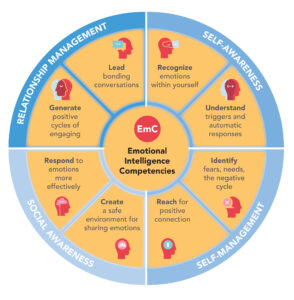
The self-awareness skill contains two steps necessary to control your own emotions and reactions.
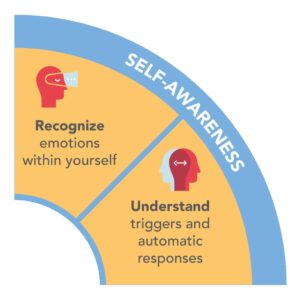
With self-awareness, you have a firm understanding of your own emotional state and the ability to prevent its influence on your words and actions toward others. Just as important is the awareness of your own triggered responses to people or events, which allows you to separate yourself from them in a rational and compassionate way while preventing potentially negative influence from coloring your interactions.
The self-management skill contains two steps that carry you from being aware of your own emotions to actually managing their impact on your own behavior.
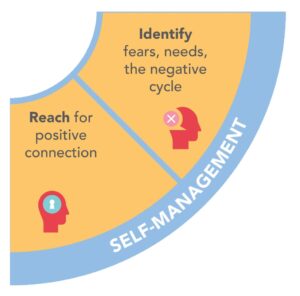
The key to self-management is the conscious effort to choose what you will or will not do. In every interaction, your goal is to act with honesty and integrity. You are in control of your actions and not reacting based on the dictates of emotion. This improves your adaptability, achievement orientation, and positive outlook.
Beyond self-awareness and self-management comes social awareness. This is where you can truly understand the impact of your own actions and emotions on the environment and people around you.
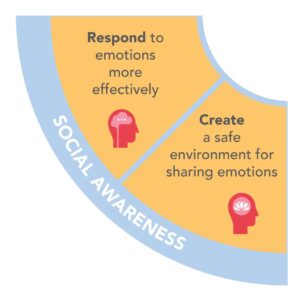
With a strong social awareness foundation, you are able to recognize the attachment significance and the emotions that drive the interactions. This is true for entire groups of people as well, or the ability to “read the room.” Such skill is invaluable for establishing trust and security in your teams. Social awareness requires the ability to listen, understand the underlying emotional message.
Relationship management is often most successful when leaders have a solid grasp of the three previous emotional intelligence skills.
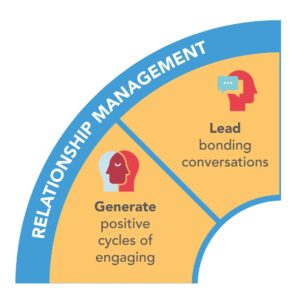
Leaders with a deep understanding of relationship management can create an environment where people can grow and develop, where open and honest conversations take place, bringing the team closer and creating strong emotional connections. They can also manage emotionally charged conflicts effectively, acknowledging care and support for each other. These strengths allow a leader to manage their team in a positive way while establishing open communication, fostering collaboration, and securing the trust of their teams.
These four emotional intelligence competencies are a true strength in any leader. While they may seem simple on the surface to learn, it does take a commitment and focus over time. Working closely with a coach or training program can ensure you develop each of these skills for the long term.
Many coaches and training programs can work with individuals or with entire teams. The EmC strategy can take you and your team beyond simple conflict management to address the underlying emotional disconnects and strengthen team dynamics. With the EmC process, your team will be able to collaborate and communicate more effectively, boosting creativity, commitment, and trust.
Looking for more on this subject? Read Daniel Goleman: Emotional Intelligence is the Ideal Strategy for a Digital Working World in 2022.
Learn more about EmC Leaders solutions to help you develop your leadership skills for 21st-century business demands and build thriving teams who succeed together. Request a free consultation to learn how you can develop a robust organizational culture using emotional connection strategies and skills